(From a speech given on January 24, 2021)
Keeping quiet is not an option. We must speak, write, paint, sing, dance for the freedom to dissent, and for our human rights.
Let me take a moment to explain why I am especially glad and proud to be releasing this book about Sudha Bharadwaj. I grew up to the sights and sounds of revolution. My family fought for freedom under Mahatma Gandhi’s leadership and my father died of his 4th imprisonment during British rule. The only mantra I learned was ‘Ishvar Allah tere nam, sabko sammati de Bhagvan’ (one of Gandhi’s favourite devotional hymns about the oneness of god). And the slogan of that long hard struggle for freedom was Inquilab Zindabad (long live the revolution).
I vigorously opposed Indira Gandhi’s Emergency (1975-77), and my involvement in human rights got me involved with the PUCL (People’s Union for Civil Liberties), in which I served as a Vice President during the 1980s. I am now opposing the climate of hatred and violence and the crushing of our freedoms that rules us today. So I feel one with all who are now fighting for justice and human rights. In this background I have been deeply interested in this book about Sudha Bharadwaj and have learned much from it. Sudha, who has been in jail for 2 years along with other Bhima Koregaon prisoners is a unique example among our heroic political activists.
Sudha is unique because she has lived with the workers whose rights she was defending and has never gone back to the comfortable middle-class life she was born into. She says she would never have understood the workers’ problems if she had not lived among them so that they could speak freely to her.
Sudha’s career has also been unique, starting as a trade unionist, working under Shankar Guha Niyogi in his Mukti Morcha and then becoming a lawyer because the workers she interacted with told her they couldn’t rely on their lawyers. They had to keep chasing them, paying them what they could ill afford and then finding that some of them were also working for the other side. Here were people in desperate need of justice who said “the court is not ours, it is theirs.” It was like Nelson Mandela’s famous statement that he felt he was a black man in a white man’s court. This had also applied to freedom fighters in India and elsewhere in Asia and Africa who were tried and convicted by white men’s courts. In colonial times the dice was heavily loaded against victims of injustice. And it is a matter of shame that this is also the case today.
An important point Sudha makes about courts is that in the 1980s courts did give pro-labour judgements, but in the 1990s, after liberalization, the opposite happened. Everything went against the working class. The new climate re-set the economy and gave corporates a “stranglehold” over it. They had the money and the means to hire top lawyers and influence cases, and to set their own terms in their dealings with workers. She gives an example of a Swiss multinational called Holcim that took over the cement industry. It bought ACC and Ambuja Cement. The wage for a contract labourer should have been Rs. 450 to 650 (£4.50-£6.50) a day. Instead the labourer was getting Rs. 180 to 190 a day (£1.80-£1.90), while the CEO of the Company was earning 8.8 lakhs (around £8,800) a day.
Sudha points out that these days the government is hand in glove with Big Business to an extent we have never seen before. It is now known that the two biggest and most powerful Indian corporations who are in league with the government are behind the farm laws that the farmers are rejecting. Arguing for the rights of contract labourers who were working in industries around the Bhilai steel plant, she was going against not only the government but against Big Business and Big Media – we all know that the government controls or owns a large number of media houses – and this has made her dangerous to the combine of wealth and power that rules our destinies today.
Sudha talks about a number of court cases she was involved in, about the behavior of the courts and the lawyers, and the difficulties of being a witness. It makes shocking reading. Enough to make one despair but Shankar Guha Niyogi had told her that the battle for workers’ rights must go on in groups as that had more chance of success. And I think this also applies to all the fights for justice that are now going on, whether for the rights of industrial workers or Adivasis or other causes. I don’t know if there is a lawyers’ collective – I believe there is – to take up cases for the needy, but it is clear that collective action is needed on all fronts, as has happened in Shaheen Bagh and the farmers’ protest.
Keeping quiet is not an option. We must speak, write, paint, sing, dance for the freedom to dissent, and for our human rights. My own last two novels are about the times we are living in. One example of fighting for rights through music is T.M. Krishna’s break with the famous annual Brahmin-dominated festival of music in Tamil Nadu. Krishna has taken his music to fishermen and people in the streets.
This book highlights the role of an amazing woman who is behind bars for fighting on. Reading it I am reminded of the countless others, known and unknown, who are in jail; countless men and women and even children, known and unknown, rural and urban, who have been tortured and killed. I have a haunting image in my mind of a 14-year-old boy being knifed and stabbed to death in a railway compartment – because he was a Muslim.
This country has never known a more desperate situation. We can no longer rely on our institutions, Election Commission, media, or even the judiciary – with some honourable exceptions. It is not the end of our history, but it is the end of civilization as we have known it. Keeping silent is not an option. We must keep the secular narrative alive and the many fights for human rights alive, keeping Sudha’s courageous example before us.
Sudha Bharadwaj Speaks: A Life in Law and Activism (People’s Union for Civil Liberties, 2021)
Sudha Bharadwaj is a trade-unionist and lawyer who lived and worked in the state of Chhatisgarh in central India for over three decades. She taught at National Law School in New Delhi from 2017 until her arrest in August 2018 for alleged Maoist links. She remains in prison without trial.
Author
-
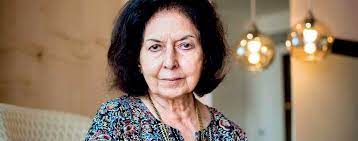
Nayantara Sahgal is a journalist and the author of over a dozen novels. She won India’s highest literary honour, the Sahitya Akademi award, in 1986 which she returned in 2015 to protest “increasing intolerance… and (for) supporting right to dissent in the country”. Born in 1927, she is the daughter of Vijaylakshmi Pandit who was a member of the Constituent Assembly of India, a diplomat, and sister of India’s first Prime Minister Jawaharlal Nehru.
View all posts

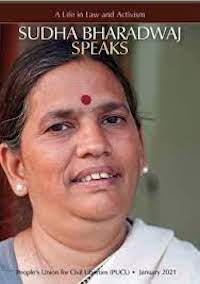


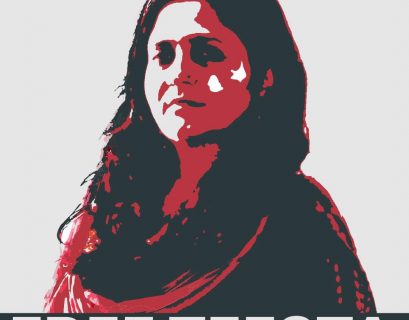
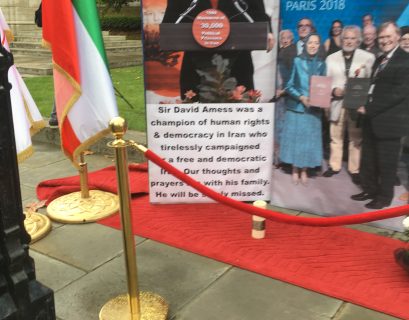
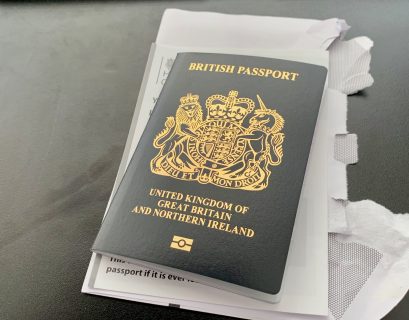


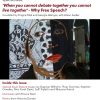
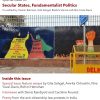
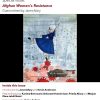

.jpg)

